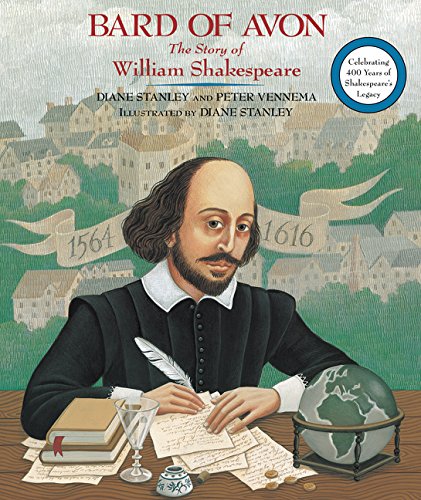As a future teacher and an English major with a propensity to take many Shakespeare courses, I often think about how, if given the opportunity, I would teach my future students to study Shakespeare.

I have come to the simple conclusion that I will not.
Many readers who are not as ardently captivated by Shakespeare’s work as I am would probably wholeheartedly agree with my decision not to include Shakespeare in my curriculum.
However, that is not my intention. Shakespeare is too inherently engrained in Western culture to exonerate his work from our curriculum.
My decision is, rather, in favour of allowing students a way into Shakespeare’s work to promote a better understanding and appreciation of why he is, as Ben Johnson would say, “not of an age, but for all time.”
I have had the privilege of being educated by countless passionate English teachers who have done nothing but hone my understanding and admiration for Shakespeare. Unfortunately, many students can testify that they have not had such an experience.

Over and over, I have heard utterances of annoyance followed by the question, “But WHY do we have to learn Shakespeare?” A valid question indeed: why is there such a hold on Shakespeare’s works?
Simply put, I believe there are few other authors who have had such a lasting impact on literature the way Shakespeare has.
Marlowe, Dante, Homer, Coelho and countless other authors are framed in infamy for their creativity and ingenuity, but who, other than Shakespeare, has the ability to reflect humanity’s inner selves in a way that transverses centuries and somehow still remains relevant?
To banish the Bard?
Shakespeare is renowned for his many skill sets. Still, there is a special significance in his specific ability to create a diverse array of characters. Harold Bloom argues that no one, before or since Shakespeare, has made so many separate selves.
While by today’s standards, Shakespeare’s namesake doesn’t fall close to representing the diversity of people globally, historically, Shakespeare was, for lack of a better word, a trendsetter with his creativity in approaching heavy topics such as religion, gender, sexuality, and more.

Although Shakespeare has stood the test of time in terms of recognition, in 2023, it is impossible to ignore the fact that many, if not all, of his works, are problematic in one way or another; not all of his historical views are relevant or for that matter, appropriate today.
In my opinion, part of the beauty of studying Shakespeare, and other classic works, is identifying these problem areas and seeing how society has evolved.
Many scholars have taken advantage of Shakespeare’s ancient worldview and capitalized on it while respecting Shakespeare’s ingenuity.
Take, for example, Dennis Britton, a second-year English professor at the University of British Columbia. Britten has created an entire class around the question of whether we should “Cancel Shakespeare.”
His course focuses on critical race theory, and through this lens, Britton explores the complex history Shakespeare has with people of African American descent. His focus is on the colour symbolism associated with anti-Black and references to the colour Black being evil, such as in Othello and As You Like It.
This invites the question, is Shakespeare even relevant anymore?
In 2017, St. Thomas professor Tony Tremblay pushed to have more New Brunswick authors filling the shelves of high school libraries alongside the likes of Shakespeare.
While creating a new curriculum for schools, what he calls the New Brunswick Literature Curriculum in English, Tremblay hoped to correct what he identified as a weak sense of provincial identity and a gap in knowledge of our own history by highlighting and making room for local authors while maintaining access to traditional literature.

This emphasis to create a more localized selection of literature within the public education English curriculum was echoed in Alberta. Students in Alberta rallied to focus on one Shakespeare play, as there is a large portion of students within Canada who do not have ancestors from England and do not speak English as a first language.
More recently, on February 23, 2023, Toronto students’ efforts were rewarded when the twelfth-grade student trustee, Isaiah Shafqat, successfully advocated replacing the grade 11 standard curriculum with a course across Toronto schools focused on the work of contemporary Indigenous authors.
There is a real sense in the world right now that there’s a need for more representation within the English curriculum.
Is there an answer?
When there is a need for new voices and perspectives to be heard, Shakespeare, as with any classic author, should be equally considered when deliberating removing works from curricula. There are obviously offensive attitudes in his work. However, he seems to be the only writer that people repeatedly come back to.
Encouraging students to develop a relationship with and engage with Shakespeare’s texts by allowing them to discuss, inquire, debate, and analyze is the only way to critique or find new ways to be wrong about Shakespeare.

Studying the plot to complete a mere memory quiz on the details of the text is no longer sufficient to assume students have read and processed the material.
Equating Shakespeare to something that can be primarily tested is wrong for students whose interests lie in his classic works. Encouraging studying of his artistry is doing them a disservice by not allowing them to engage. For those who don’t care about Shakespeare, you are wasting their time by testing them on the material they don’t care about relating to.
Whether there is an answer to “cancelling Shakespeare” is largely up to interpretation. For students, perhaps the answer lies in allowing them choice in the material they read. Those who don’t want to read Shakespeare may draw just as much, if not more, from material they relate to and can draw meaning from.
Shakespeare teaches us how and what to perceive, and he also instructs us how and what to sense and then to experience as sensation. The ultimate use of Shakespeare is to let him teach you to think too well, to whatever truth you can sustain without perishing. It is not an illusion that readers (and playgoers) find more vitality both in Shakespeare’s words and in the characters who speak them than in any other author, perhaps in all other authors put together. Early modern English was shaped by Shakespeare: the Oxford English Dictionary is made in his image. Later modern human beings are still being shaped by Shakespeare. He has become the first universal author.
For others, there is dread in his work; its painfulness exceeds all measure.
Perhaps the answer lies in allowing students a choice and a search for balance in the use of Shakespeare’s works can be achieved.
While it is apparent that a lot of the curriculum in our classroom privileges white, male, and European voices, the question of Shakespeare’s relevance for students still brings to light the many perspectives that are permeated within Shakespeare’s plays.
Allowing students to engage with the larger cultural perspectives that arise while reading historical works in classrooms can be the place that begins a shift of cultural values.
A balance can be struck while introducing other voices and still keeping historical perspectives. Considering how often students come across Shakespeare could greatly influence students’ values of his work.
Allowing students to approach a Shakespeare play of their choice and interrogate the merit of Shakespeare’s arguments through a close reading of the text can build a foundational appreciation for both classic works and allows students to critically analyze what they choose to read.
Finally, I believe the answer lies in how we use his texts. Involving students in the conversation, the production and acting of his texts help to teach students to interrogate why Shakespeare is still prevalent in our society through hands-on experiences with Shakespeare while still making space for authors whose voices should not be ignored?
In conclusion, I believe there is an inherent advantage in leveraging Shakespeare’s power in the literary world to discuss important issues like race and gender roles with our students.


